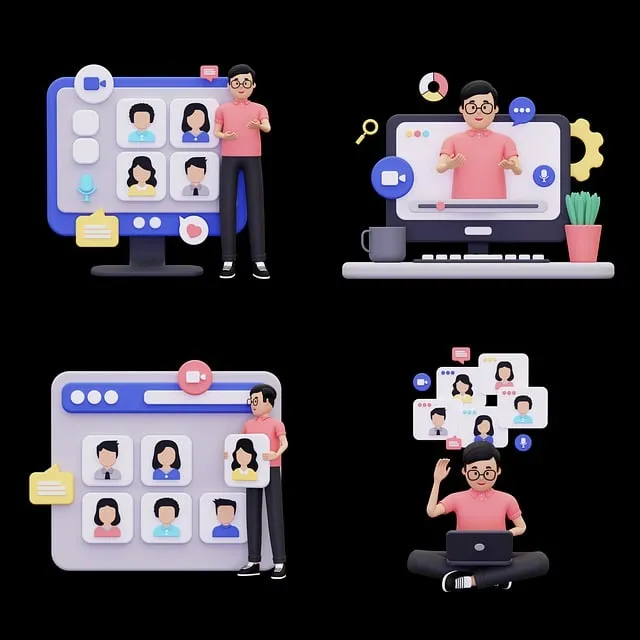Confidential computing is a secure data processing method that prioritizes user privacy and security, especially crucial for social media influencers handling sensitive client information. It keeps data encrypted, preventing unauthorized access even if systems are compromised, thereby aligning with stringent privacy regulations. By combining confidential computing with tools like Tor and VPNs, influencers can protect their digital footprints, maintain anonymity, and safeguard interactions online, making it a vital tool in today's digital landscape.
In an era where digital privacy is a paramount concern, anonymous web browsing has emerged as a critical skill for IT professionals. This article delves into ‘Confidential Computing: A Primer for IT Pros’, exploring why anonymity is essential in the modern digital landscape. We’ll dissect tools and techniques to enhance online privacy while discussing best practices and ethical considerations for secure browsing—essential knowledge for anyone navigating the web, especially influencers utilizing social media platforms.
- Understanding Confidential Computing: A Primer for IT Pros
- The Rationale for Anonymous Web Browsing in the Digital Age
- Tools and Techniques for Achieving Anonymity Online
- Best Practices and Ethical Considerations for Secure Browsing
Understanding Confidential Computing: A Primer for IT Pros

Confidential computing is a paradigm shift in data processing that prioritises privacy and security, making it especially appealing to IT professionals dealing with sensitive information. Unlike traditional cloud computing models where data is stored on remote servers accessible to various parties, confidential computing ensures data remains within the control of the user or organisation. This approach leverages advanced encryption techniques to process data locally or within secure boundaries, preventing unauthorised access even if systems are compromised.
For IT professionals, understanding confidential computing becomes increasingly vital as social media influencers and content creators process vast amounts of personal data. As these influencers collaborate with brands and businesses, they need robust mechanisms to safeguard user privacy while leveraging the power of cloud-based tools. Confidential computing offers a solution by enabling secure data processing in conformance with stringent privacy regulations, fostering trust among users and aligning with best practices for data protection.
The Rationale for Anonymous Web Browsing in the Digital Age

In the digital age, where data is a valuable commodity, anonymous web browsing has emerged as a crucial practice, especially for IT professionals. As online interactions become increasingly intertwined with sensitive information, ensuring privacy and confidentiality becomes paramount. This is particularly true for social media influencers who handle vast amounts of personal data daily. Confidential computing, a concept that advocates for secure data processing without revealing underlying information, is not just a buzzword but an essential tool to safeguard digital privacy.
By employing anonymous browsing techniques, professionals can navigate the web without leaving traces that could potentially expose user identities and behavior patterns. This is vital in an era where cyber threats are prevalent, and personal information is often targeted for malicious purposes. It enables individuals to exercise control over their digital footprint, ensuring a safer online experience, especially when dealing with sensitive topics or confidential client data.
Tools and Techniques for Achieving Anonymity Online

In the realm of anonymous web browsing, IT professionals have a plethora of tools and techniques at their disposal to safeguard their digital footprint. Confidential computing is a game-changer here, enabling secure data processing without sacrificing privacy. Tools like Tor, a popular network for enhanced anonymity, route internet traffic through multiple encrypted layers, making it challenging for trackers to identify users. Additionally, virtual private networks (VPNs) play a crucial role in encrypting online activities, protecting personal information from prying eyes.
For social media influencers navigating the digital landscape, achieving confidentiality is essential to protect their content and interactions. Employing advanced encryption protocols, such as those offered by zero-knowledge proof systems, ensures that data remains secure even in transit. Combining these tools with best practices like using unique, disposable email addresses for online activities can significantly enhance anonymity, especially when engaging with sensitive topics or protecting personal branding.
Best Practices and Ethical Considerations for Secure Browsing

When engaging in anonymous web browsing, IT professionals must adopt best practices to ensure security and maintain confidentiality. This includes using robust, trusted Virtual Private Networks (VPNs) that encrypt data traffic, protecting against malicious software, and regularly updating security protocols. Additionally, employing browser extensions designed for privacy enhancement, such as ad blockers and tracker preventers, can significantly reduce digital footprints.
Ethical considerations are paramount in this context. Anonymity should not be a license for unauthorized access or cybercrime; professionals must respect the privacy of others and adhere to legal frameworks governing data protection. Balancing the need for confidentiality with responsible computing practices is crucial, especially in light of growing concerns about data privacy and security, even for social media influencers who require confidential computing environments to protect sensitive information and interactions.
Confidential computing is a game-changer in the digital landscape, especially with the growing need for secure and anonymous web browsing. As IT professionals, understanding this concept is crucial for enabling a private online experience without compromising security. By utilizing tools and adopting best practices discussed, we can ensure that social media influencers and all users alike maintain control over their data and privacy. This knowledge is vital in today’s interconnected world, where confidentiality and anonymity are essential components of digital security.
